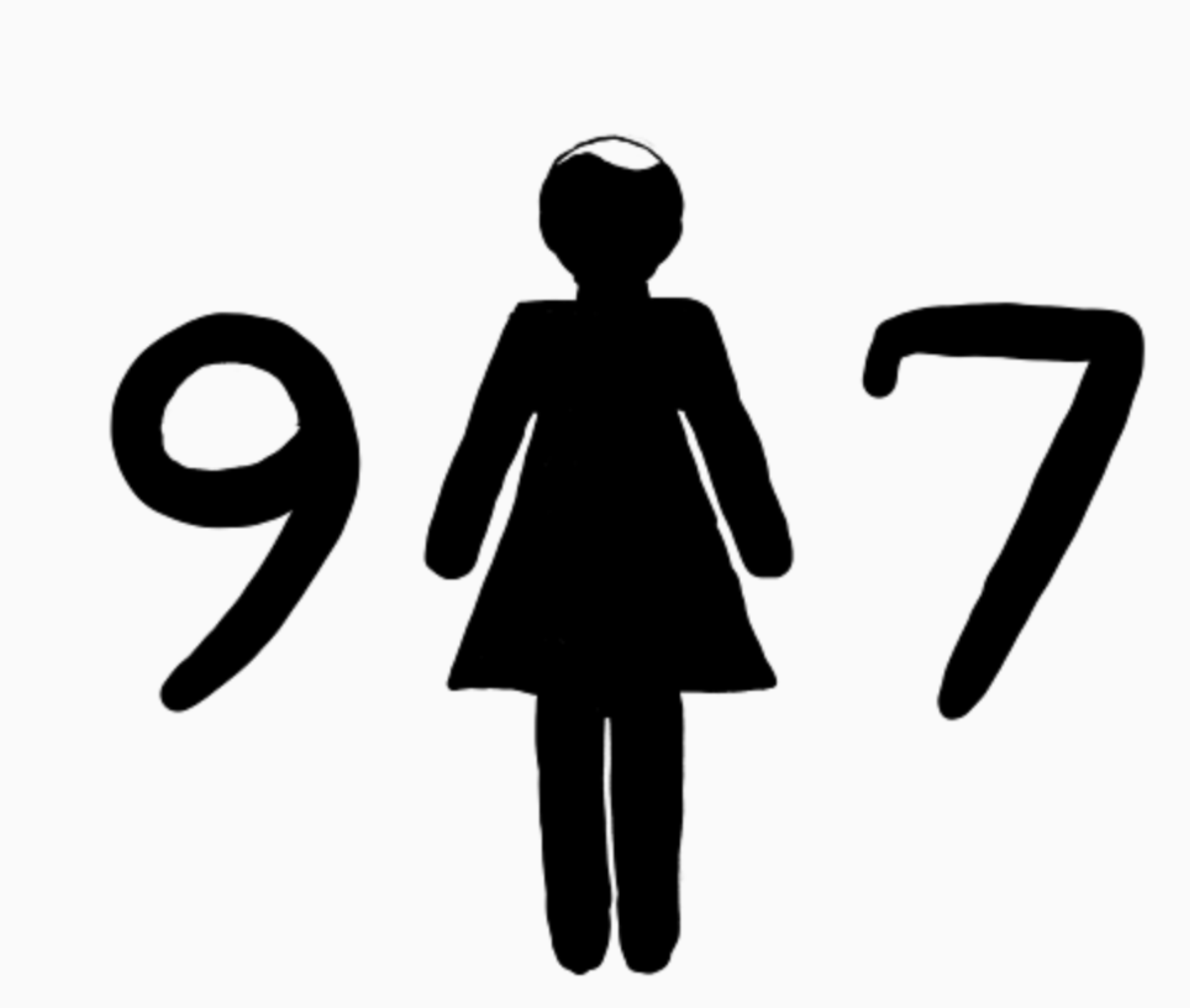Debunking the debunking of the 97 percent
March, 2021
97 percent is a big percentage, and when you hear it in the context of sexual assault, coercion, and harassment, you’re bound to be baffled. Yet data collected by UN Women UK for 2021 show that 97 percent of women aged 18–24 are sexually harassed, catcalled, assaulted, coerced, or made uncomfortable by men and that over 70 percent of women of all ages have endured such behavior. The results shocked the Internet and, as always, the study’s critics came running. But for the women who live in this world, surprise wasn’t our first reaction — it was disappointment. This is the terrifying reality we face every day. Being a woman in such a warped society is so difficult and unsafe that statistics like these are heartbreaking but not surprising. We live in a society that constantly devalues our basic existence and belittles our lived experiences, one that cannot afford us the same basic human dignity that it affords everyone else. The rules that we live by aren’t the rules that anyone else has to live by. If it were all the same, then 97 percent of us wouldn’t live in fear.
Critics of the study often combat the numbers by pointing out how unrealistic the percentage is, yet one thing that needs to be made clear is that this statistic does not just cover sexual assault and rape: It covers every aspect of coercion and unwanted advances on women. Yet whether it was two percent or 97 percent reported, that statistic was still too high — it should be zero percent. But regardless of what the number is, attempts to diminish the statistic (without evidence) are just a thinly veiled version of normalizing toxic masculinity and serve as erasure of very real experiences for women. Another argument that the study’s opposers tend to present is that the portion of women surveyed is too small, and it’s impossible for it to represent the billions of women living on the planet. If you really think about it, 97 percent of 1,089 women in a first world country have gone through these terrifying experiences, so if anything, it’s more likely that the percentage may be even higher globally. Trying to debunk this statistic and remaining unwilling to listen to survivors reflect a societal disbelief that discourages and scares women from sharing their stories; because instead of believing the victims, the public will slut-shame and gaslight instead of accepting the truth and taking action. Our society would rather degrade a woman for the clothes she wears or the way she acts rather than directing that energy and anger towards her abuser — someone whose sexual desires overtook their senses and who dangerously took advantage of a defenseless woman.
We live in a society that over-sexualizes women, where women are seen as sex toys before they are seen as fellow people, where they are reduced down to lingerie lovers, where the value of their lives is downplayed because the male gender’s fragility means men cannot fathom the idea of a woman being more successful than them. Women are constantly forced into a role that the majority of them do not want to be in. Women are also living, breathing human beings who are not here to satisfy the sexual pleasures of the men around them. We are living in a world where young women are constantly forced to modify their behavior and clothing just so they can walk peacefully throughout town. We live in a world where we gaslight female victims instead of reprimanding the abusers, and we live in a world where women face larger consequences for wearing a tube top at school than men do for publicly harassing their female classmates. Instead of blaming women and trying to change them, we must teach the abusers in the room how to control themselves and accept the grim consequences for their unwelcomed behavior. Abusers need to stop using random and feeble justifications such as having a difficult family life, receiving poor education, or lacking emotional maturity. These excuses do not erase the fact that an abuser is an abuser no matter who that person is. From a young age we are taught to respect each other, no matter who that person is, so using sad living conditions to save oneself will never make up for the trauma and pain that is inflicted upon a victim.
To the adults in the room and those in power: Do better. Young girls live in constant fear of becoming the next victim, survivor, or data point. When only three percent of a population hasn’t experienced violation, there’s an issue. Young girls come to school to learn, not to be assaulted, but it seems like even this is too much to ask. Women of all ages are targeted whether they show their skin or not, whether they’re flirting or standing off, whether they’re drunk or sober; female victims are not at fault here and will never be at fault. Abusers and perpetrators need to learn that no means no. They need to learn to respect boundaries and accept the consequences of their actions. When women share their stories, the bare minimum is respecting them. The only way that we can progress past these events is by doing a better job of educating the upcoming generations. The fact of the matter is that most abusers are raised with an abuser mentality. That abuser mentality is dangerous and reeks of toxic masculinity, and it entails the ideas of male dominance and using force to achieve desires. All women deserve your respect. All women deserve safety. All women deserve humanity. So let them have it.